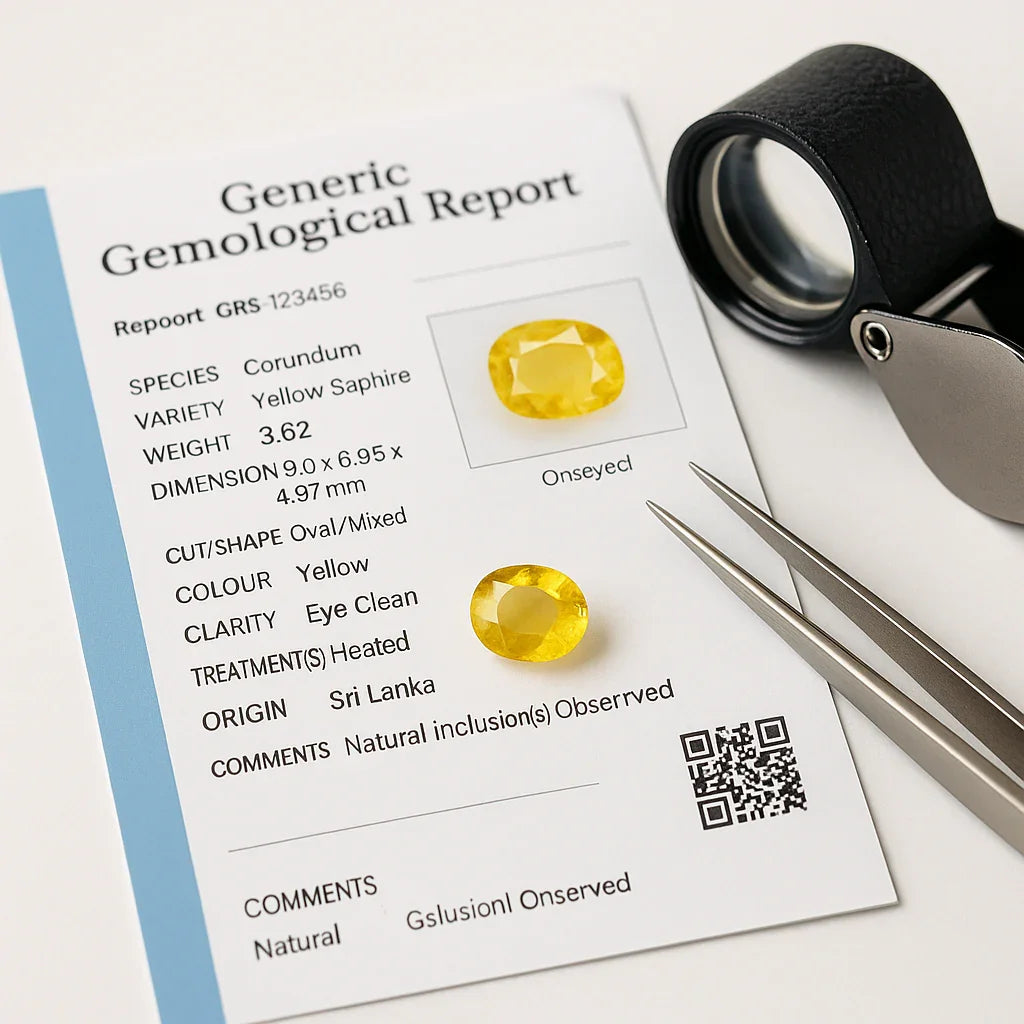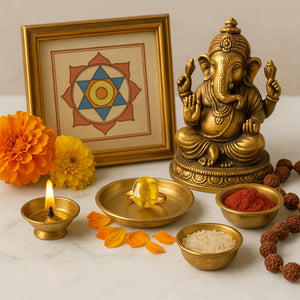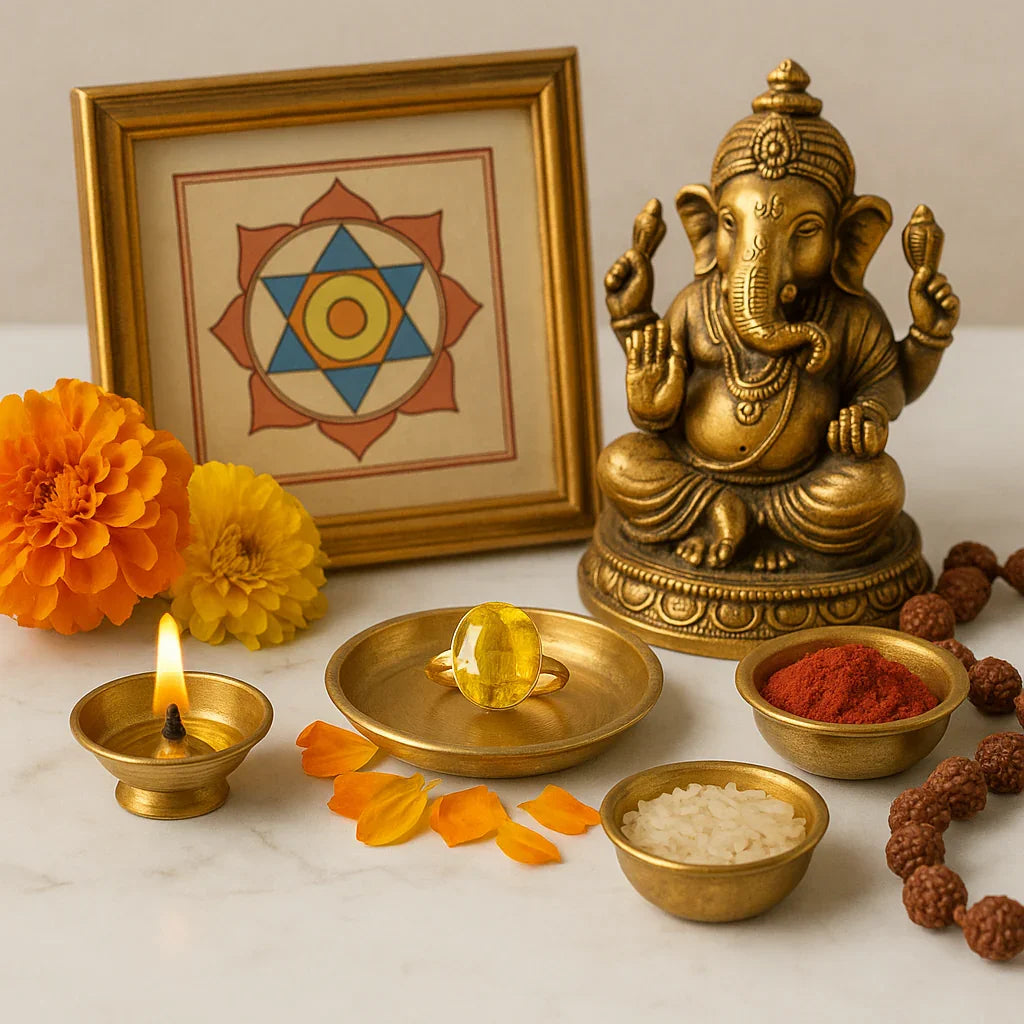What a Genuine Certificate Usually Includes
-
Report number (unique ID you can verify on the lab’s website)
-
Species & variety (e.g., Corundum – Yellow Sapphire / Pukhraj)
-
Weight & dimensions (in carat and mm)
-
Cut/shape & colour (oval, cushion, vivid yellow, etc.)
-
Clarity / comments (inclusions, growth features)
-
Treatments (e.g., heated, lead-glass filled, dyed, irradiated)
-
Origin (if given) (e.g., Sri Lanka / Ceylon)
-
Photo of the actual stone
The 7-Point Buyer’s Checklist
-
Check the lab name & credibility. Prefer reputed Indian or global labs. Avoid “in-house” or no-name paper slips.
-
Verify the report number online. Enter the number on the lab website; the carat, shape and colour must match your stone.
-
Match the photo & measurements. Dimensions and face-up outline should match the certificate photo.
-
Read the treatments line carefully. Heated is common for sapphires; avoid “lead-glass filled” rubies for astrological use.
-
Be realistic about origin. Origin is complex; be cautious if every stone claims “Burma/Ceylon” at low price points.
-
Look for QR code or security features. Modern reports often include scannable checks.
-
Cross-check with the seller. Ask for a return policy and WhatsApp photos/video under daylight.
Common Treatments (Quick Notes)
-
Heat treatment (Sapphires/Rubies): Enhances colour/clarity—usually accepted, disclose required.
-
Lead-glass filling (Rubies): Fills cracks; looks pretty but not durable for rings; avoid for astrology.
-
Dyeing/Resin (Agates, Emeralds, Organic): Can alter colour; ask for disclosure.
-
Diffusion/Beryllium: Alters colour layer—not preferred for astrological purpose.
Natural vs Lab‑Grown vs Simulant
-
Natural: Formed in nature; value depends on colour, clarity, cut, origin.
-
Lab‑grown: Same chemistry as natural but man‑made; great for jewellery budgets, not used for astro remedies.
-
Simulant: Looks similar (e.g., glass, cubic zirconia) but different chemistry.
Pro Tips from Sandhya Gems
-
Ask for daylight photos and ring-on-hand shots to judge face-up colour.
-
For Jupiter’s stone, explore our Pukhraj (Yellow Sapphire) picks.
-
Prefer open-back settings so light can enter the gem.
Shop the look
-
Yellow Sapphire / Pukhraj →https://sandhyagems.in/collections/ruby-gemstone
-
Emerald / Panna →https://sandhyagems.in/collections/emerald-panna-gemstone
-
Ruby / Manik → https://sandhyagems.in/collections/ruby-gemstone
FAQ
Q1. Can I rely only on a certificate? Use it with price transparency, lab verification and a trusted dealer.
Q2. Is heated sapphire okay? Yes for jewellery and often acceptable for astrology; avoid glass‑filled or diffusion‑treated stones.
Q3. Can I get origin on every stone? Not always; origin determination is complex and costs more—focus first on colour and clarity.
CTA: WhatsApp us for free guidance on picking a certified stone and setting it as a ring or pendant.











